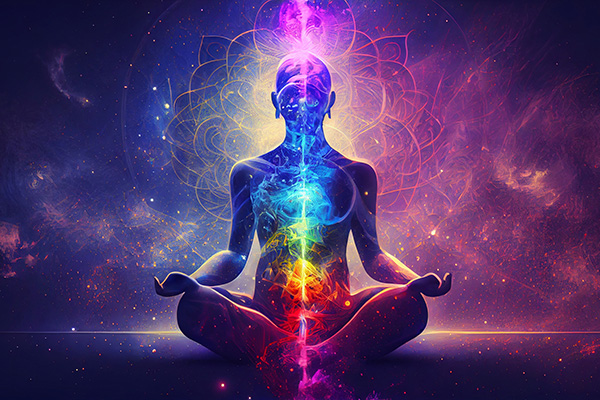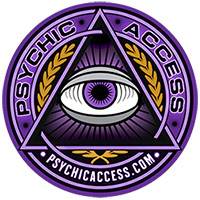How Color Meditation Can Change Your Energy
 Did you realize that chromotherapy can enhance and recalibrate your emotional, physical, and spiritual well-being? Indeed! Colors are not merely visual stimuli. They represent light frequencies that engage with our energy fields, influencing our feelings, thoughts, and actions.
Did you realize that chromotherapy can enhance and recalibrate your emotional, physical, and spiritual well-being? Indeed! Colors are not merely visual stimuli. They represent light frequencies that engage with our energy fields, influencing our feelings, thoughts, and actions.
Throughout history, mystics, healers, and shamans have recognized what contemporary holistic specialists are rediscovering: color serves as a powerful healing instrument.
From the passionate vigor of red to the soothing serenity of blue, the visible light spectrum presents a plethora of options for personal evolution. Each hue possesses its own frequency, and these subtle energies can be intentionally activated to facilitate healing, clarity, and spiritual advancement.
It can be utilized to invigorate your chakras, enhance your aura, and foster equilibrium between your internal and external realms.
A remarkably effective means to engage with the power of color is through meditative visualization. By purposely concentrating on a specific color during your meditation, you create a sacred connection between intention and realization.
This focus aligns your energy field to resonate with the energetic essence of that color, benefiting your mind, body, and spirit.
The essential aspect of utilizing color effectively is to synchronize it with your present emotional or energetic requirements. For example, if you desire revitalized optimism and happiness, immerse yourself in the sunny embrace of yellow. Feeling emotionally fragile or stressed? A gentle green can comfort and restore your heart. Deep reds can invigorate and stabilize, while blues promote tranquility and clear communication.
Typically, darker hues provide a more profound and grounding effect, whereas lighter shades offer a gentle, uplifting presence.
Color is the keyboard, the eyes are the harmonies, the soul is the piano with many strings. The artist is the hand that plays, touching one key or another, to cause vibrations in the soul ~ Wassily Kandinsky
Trust your instincts. Your soul always understands what you require. By integrating color into your spiritual routines, you invite vitality, equilibrium, and healing into your life in the most organic and harmonious manner.
Working with chakra colors is one of the simplest approaches to begin, as it provides an intuitive and symbolic framework deeply embedded in centuries of spiritual heritage. The seven primary chakras each correspond to a particular color and position in the body, creating a systematic guide for newcomers to follow. There’s no need to develop your own structure; it’s already established for you. Commencing with chakra colors is akin to starting to paint with a pre-arranged palette. It is accessible, significant, and impactful.
Guide To Chakra Colors
Each of the seven primary chakras is linked to a specific hue, and meditating on these colors can activate, balance, or heal these energy centers:
RED – Root Chakra (Muladhara): A rich, earthy red grounds your spirit in the physical realm, providing energy, safety, and resilience.
ORANGE – Sacral Chakra (Svadhisthana): This vibrant, invigorating tone ignites creativity, emotional liberation, sensuousness, and spontaneous delight.
YELLOW – Solar Plexus Chakra (Manipura): The hue of sunlight, yellow enhances self-worth, confidence, and personal strength.
GREEN – Heart Chakra (Anahata): Representing equilibrium and unconditional affection, green fosters compassion, forgiveness, and tranquility.
BLUE – Throat Chakra (Vishuddha): A calming blue promotes honesty, clarity in communication, and authentic self-expression.
INDIGO – Third Eye Chakra (Ajna): This dark, mystical hue enhances intuition, inner sight, and spiritual awareness.
VIOLET / WHITE – Crown Chakra (Sahasrara): These colors link you to higher consciousness, divine wisdom, tranquility, and enlightenment.
During meditation, envisioning the corresponding color flowing through each chakra can stimulate and harmonize these centers, fostering a state of overall wellness.
Music and Color both possess the ability to induce significant changes in body chemistry. The brain reacts to each and subsequently influences hormone levels and even the efficacy of the immune system ~ Lillian Verner-Bonds
Easy Color Meditation
Prepare Your Sacred Space. Select a hue that resonates with your current needs. Light a candle of that color, dim the lights, and play soft, ambient music to create a calming atmosphere. Ensure you are in a comfortable setting where you won’t be interrupted.
Ground & Relax. Take off your shoes, settle into a cozy seat, and take a few moments to stretch gently. Inhale deeply, then exhale slowly, releasing any physical tension.
Breathe With Intention. Center your attention on your breath. Inhale slowly to the count of ten, then exhale to the count of ten. Allow your breath to become rhythmic and natural, pulling you deeper into relaxation.
Gaze Into The Flame. Softly fix your gaze on the candle. As you breathe, visualize drawing the candle’s hue into your Heart Chakra with each inhale. Let the color radiate warmth and energy within your chest.
Envision The Color Flow. Next, picture the chosen color enveloping your entire being. See it swirling through your body, energizing your aura with its vibration. Feel it dissolving stress, clearing blockages, and revitalizing your chakras.
Seal The Energy. Visualize a radiant sphere of light, the same color you’ve been focusing on, surrounding your entire body. This sphere encapsulates the healing energy, serving as a protective and fortifying shield.
Call Upon Your Higher Self. Finish your meditation by inviting your Higher Self to bless and safeguard your energy field. Express gratitude for the healing you’ve received, and then gently return your awareness to the present moment.
Over time, you may discover that the physical candle becomes unnecessary as you learn to summon each color solely through visualization. The more you practice, the more effortlessly the colors will respond to your intentions.
Let this straightforward practice be your entryway into the vivid domain of color meditation. The more you connect, the more significant the transformation.
|
Lucinda is a skilled Intuitive and Empath, residing in a charming village in North Yorkshire, England. She has the unique ability to comprehend a client’s personal struggles and has faced many challenges herself, only making her stronger! It is both her purpose and her joy to assist those in need. Whenever she requires guidance, her Guides are always present to aid in her development and provide clear insights for her clients. Prediction has always been a valuable tool she can rely on to foresee events accurately, but Lucinda also draws upon her skills in Dream Interpretation, Numerology, Angel Cards, the Law of Attraction, and Life Coaching to offer comprehensive and detailed solutions to any issue. She is a member of AMORC and Beyond Freedom Evolution, providing inspiration, education, and personal support for spiritual development. If you seek answers or wish to manifest your desires, you can find Lucinda at PsychicAccess.com. |
Color meditation is an impactful practice that can aid in transforming your energy and achieving balance for your mind, body, and spirit. By concentrating on various colors during meditation, you can tap into the energy associated with each to foster healing, relaxation, and overall well-being.
Each color is linked to distinct traits and emotions, and by meditating on a particular hue, you can access those characteristics and introduce them into your life. For instance, red is connected to passion, energy, and vitality, while blue signifies tranquility, peace, and communication. By focusing on these colors, you can incorporate their qualities into your energy field and reap their advantages in your daily life.
Color meditation may also assist in balancing your chakras, or energy centers, in the body. Each chakra corresponds with a different hue, and meditating on that color can help clear and equilibrate that chakra, enhancing overall health and wellness. For example, meditating on green can help align the heart chakra, fostering love, compassion, and emotional healing.
In addition to enhancing emotional and physical healing, color meditation can also alleviate stress and anxiety. By concentrating on a specific color and allowing yourself to fully immerse in its energy, you can quiet your thoughts and cultivate a sense of calm and peace. This can mitigate feelings of overwhelm and nurture a sense of inner balance and harmony.
To engage in color meditation, find a tranquil and comfortable space where you can sit or lie down easily. Close your eyes and take several deep breaths to center yourself. Select a color that resonates with you at the moment, and visualize that color enveloping you in a bright, radiant light. Allow yourself to be fully immersed in the energy of that color, feeling its characteristics and vibrations enveloping you.
As you maintain your focus on the color, permit any thoughts or feelings that arise to simply flow through you without judgment. Stay present, allowing the energy of the color to fill you with peace, healing, and balance. You may also utilize affirmations or mantras related to the color you are meditating on to enhance the experience.
Color meditation is a straightforward yet highly effective practice that can help transform your energy and impart a sense of harmony and balance in your life. By integrating this practice into your daily routine, you can experience the healing and transformative power of color in a meaningful way. Try it out and discover how color meditation can help you tap into the energy of the rainbow and invite more light and positivity into your life. Continue reading
















